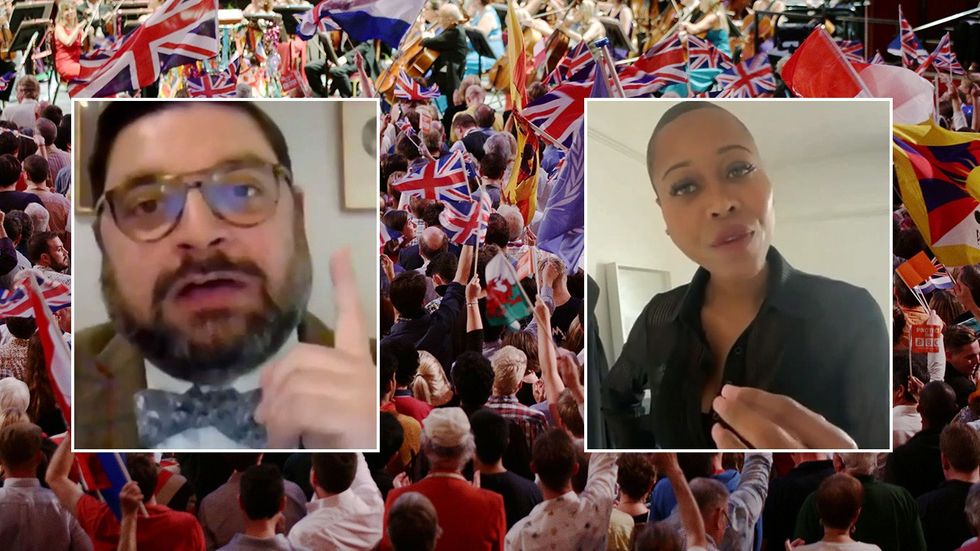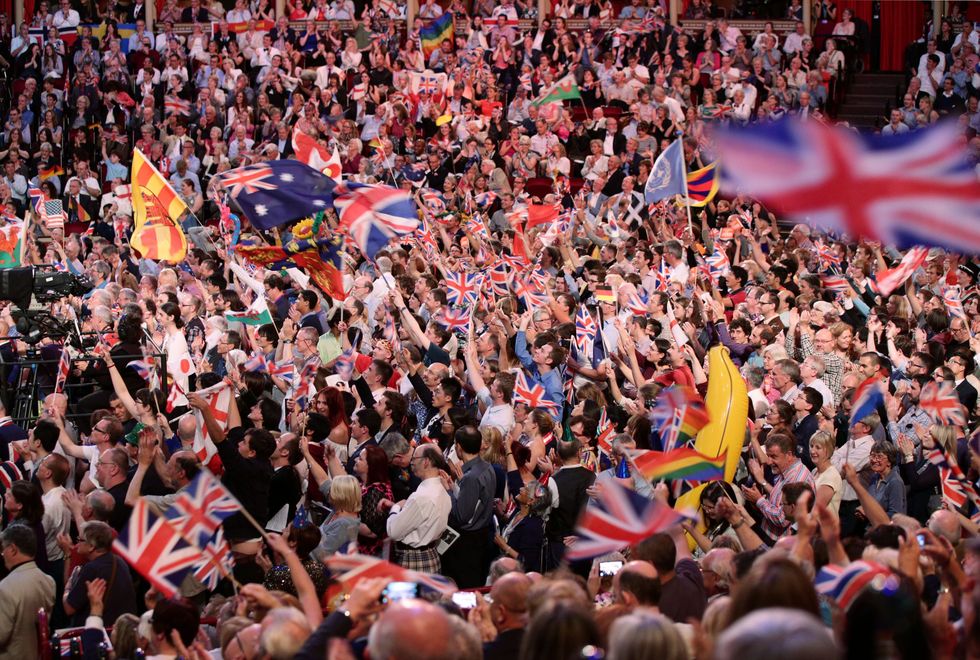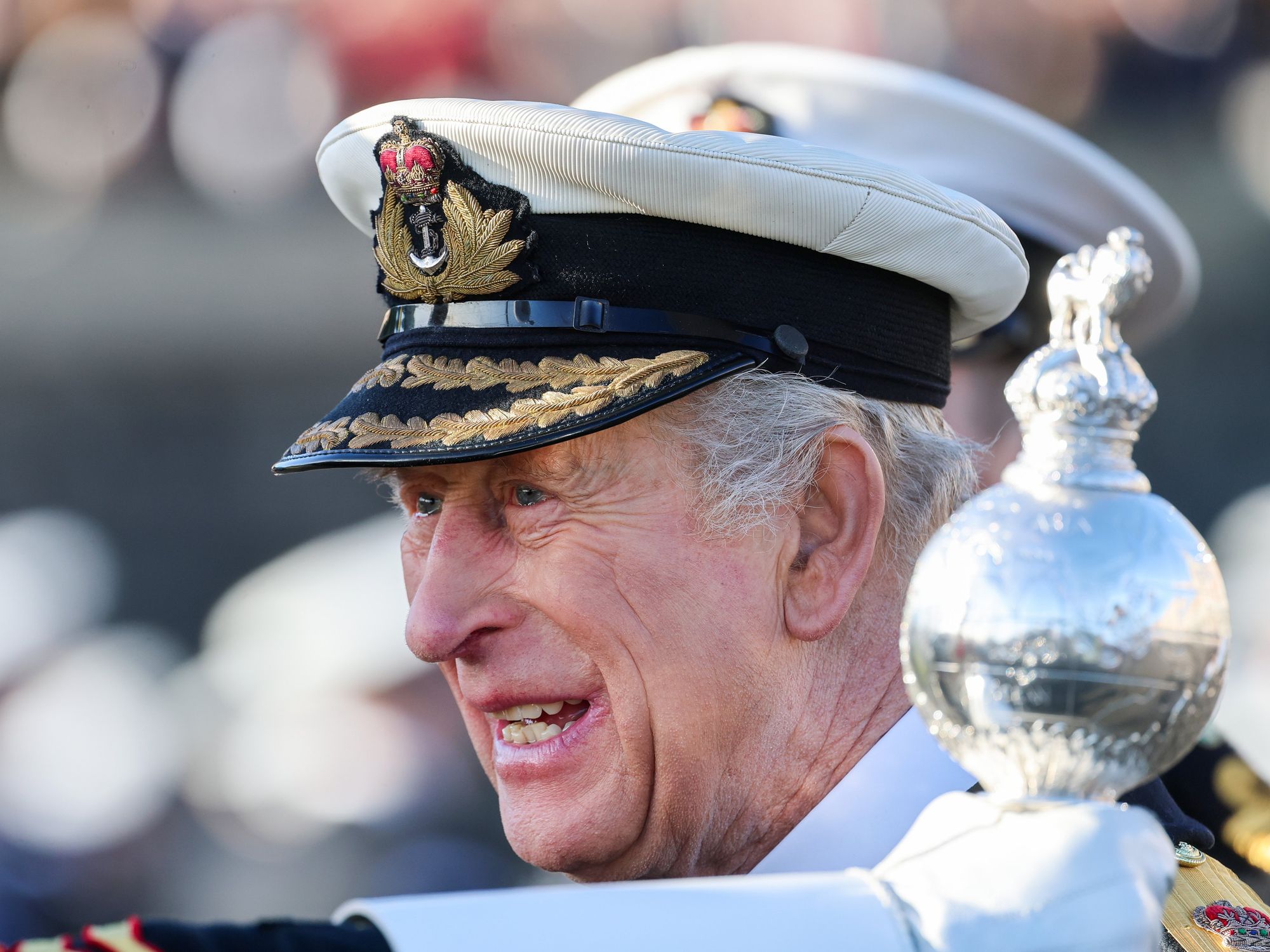BBC sparks fiery debate on meaning of 'protest flags' after Proms ban: 'It's NOT a Palestinian tradition!'

The broadcaster has banned any flags 'related to protest, hatred, or advertising' ahead of the annual classical music event
Don't Miss
Most Read
The BBC has sparked a divisive debate over the meaning of "protest flags" after imposing a ban on certain flags being displayed at their annual Last Night of the Proms event.
The classical music spectacle has become subject to controversial flags being waved by music lovers over the years, including EU flags and flags from other world nations.
However, the BBC's policy this year demands that any flags "related to protest, hatred, or advertising" will not be allowed into the Royal Albert Hall.
Hitting out at the broadcaster's decision, commentator Imarn Ayton claimed the event is "not a British tradition" and highlighted how we "don't know what a protest flag means".

The broadcaster has banned any flags 'related to protest, hatred, or advertising' ahead of the annual classical music event
|PA / GB News
In defence of the BBC, historian Rafe Heydel-Mankoo argued that the Proms is an event that "unifies the nation" and that all politics should be left at the door of the Royal Albert Hall".
Debating the ban on GB News, Ayton fumed: "In order to achieve unity, you do have to include all of the different opinions and thoughts. When we think of protest flags, I don't even know what that is, but a protest flag can delve into intellectual terms - it's just people advocating for what they believe in.
"If this is a country that claims that they are leading with equality and inclusive behaviours and multiculturalism, then we should be taking all of those things into account."
In contrast to Ayton's view, Heydel-Mankoo hit back: "Every other public space seems to have been taken over by politics, and the whole point of the Last Night of the Proms is to unify the nation. It's been a shame to see, over the past few years, politics inserting itself in the shape of the EU flag.

The Proms have become subject to a variety of different nation flags over recent years, including the EU flag
|PA
"And to have such a wave of flags within the Albert Hall detracts from what should be a very uniting and positive event."
LATEST DEVELOPMENTS:
Affirming her point that classical music and the Proms is "not a British tradition", Ayton then explained: "England did not start classical music. It didn't end with England. Let's not act as if this is British, it's European."
When asked by host Emily Carver where he would "draw the line" on flags entering the Royal Albert Hall, giving examples of the EU and Pride flags previously being waved by audience members, Heydel-Mankoo responded: "If you want to protest, you can just walk outside the Albert Hall across the road and go to Speaker's Corner in Hyde Park and have your protest there.
"Leave the politics at the door. The Albert Hall is for classical music, and it's a great British tradition. It's not a great European tradition, is not a great Palestinian tradition. It's a British tradition that is the time for us to celebrate.
"And I'm sorry, but politics has no place within what should be a moment for social cohesion and the nation coming together. British people know what they like to celebrate and they don't want to see it demeaned and devalued and debased by having politics and the nasty politics of protest."

Imarn Ayton claimed that the BBC Proms is 'not a British tradition'
|GB News
Turning the debate back to Ayton, host Emma Webb claimed that the Proms is a "British event", to which Ayton raged in response: "If we actually talk about facts, not feelings, not race perceptions, classical music is from Europe.
"We want to keep it to Europe, we want to include all different types of flags and different types of feelings. Classical music originated in Europe, it's not British.
"It never has been British, nor did it start and end with Britain. It actually comes from Europe, and Europe has 44 countries."











